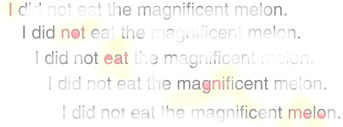

 |
Greg Kochanski |  |
Plagarism has been a problem in academia since the second scribe set stylus to clay, back in or near ancient Ur. However, it's always been a do-it-yourself business until recently.
These days, if you want to plagarize, it is easy to buy an essay on the web. Companies have sprung up, like Oxbridge Essays, that will act as a middle-man and obtain an essay for you, for a fee. Then, if you are inclined to plagarize, well, that's between you and your conscience.
The problem is ably discussed in The Times (Dec 4, 2008, by Tom Whipple, in "Students: All my own work? Well, not quite.") and the Guardian (3 April 2007, "Their Dark Materials" by Lucy Tobin).
And, the point of that article is that this commercialized plagarism can't easily be stopped. The writers (poorly paid that they are) sell the copyright of their articles to Oxbridge Essays, so (even if they wanted to) they no longer have the right to use them. Thus, the only people who could prove plagarism would be the people who run Oxbridge Essays, and they do not seem to be inclined to do so.But that is a pessimistic conclusion based on an overly broad reading of copyright law.
Why? To understand this, we need to understand something about copyright. First, copyright is defined in terms of the particular arrangement of words, not in terms of ideas. What this means is that I could sell you the copyright to this document, but not to a document that is only vaguely described. Specifically, it means that one cannot buy the copyright to "all antecedents of document X", because there is no clear way of defining what writings were antecedents. Is Tom Whipple's article an antecedent of this essay? Is my Ph.D. thesis? Even more so, there is no way of buying the copyright of "all related documents."
So, given that, there is a fairly straight-forward strategy. All one needs to do is to generate pairs of similar essays, sell one to such a company, and (later) submit the other to web-sites that search for plagarism.
To make it work, one needs to generate the essay pairs carefully: write a draft essay, then pass copies to two friends for light editing. Sell one edited version, then submit the other for plagarism checks. This needs to be done before signing a contract to produce an essay, because the contract probably specifies that Oxbridge Essays owns the copyright to all works resulting from their commission.
Doubtless, there are legal moves and counter-moves that can be made. However, a properly designed procedure would add enough uncertainty so that people will worry. Students who are thinking of buying an essay to plagarize will realize that there is a chance of getting caught. If there are any companies that intentionally make a business out of plagarism, they will not be able to provide a safe and secure service.
It will take a certain amount of organization. The good guys will have to amass a large bank of essays, big enough so that some items will match common commissions. Front-men and -women will have to be found to sell the essays. Lawyers will need to give opinions; committees will need to meet. But, this is an important problem for the Higher Education system, so it deserves some effort.
In the end, it should be possible to inject enough uncertainty into the business of buying and selling essays to dissuade most people from submitting purchased essays as their own. This is a goal to which any honest company should agree.
| [ Papers | kochanski.org | Phonetics Lab | Oxford ] | Last Modified Tue Dec 23 22:34:20 2008 | Greg Kochanski: [ Home ] |